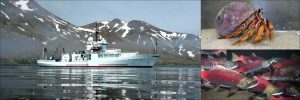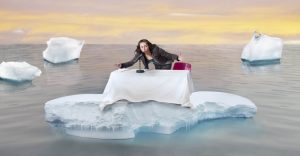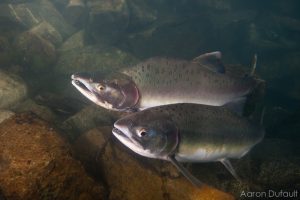Marine Mammals Passive Acoustic Talk
Eavesdropping on the ocean: using passive acoustic monitoring
technologies to estimate marine mammal population sizes
Please join us for a talk by Dr. Danielle Harris on Tuesday, December
6th at 11:30am in Ocean Teaching Building room 155. Dr. Harris is a
statistical ecologist and acoustician visiting from St. Andrews
University’s Centre for Research into Ecological and Environmental
Modelling (CREEM). This lecture is open to the public.
Marine & Aquatic Sciences Information Session on Wednesday, 11/16

Wednesday, November 16
3:00 – 4:00 PM
Fishery Sciences Building, Room 203
Majors
Aquatic & Fishery Sciences Oceanography
Minor
Marine Biology
Marine Field Station
Friday Harbor Labs
Over 70% of the Earth is covered by water. Explore majors, minors and opportunities related to the study of this part of the environment in a one-hour information session with academic advisers. Learn more about why the UW is a global leader in these fields, and find out more about:
Recommended courses for exploration
Program requirements
What senior projects/research looks like in these programs
Career paths
session is open to current and prospective UW students
[Register]
UW Honors Climate Change Conversation (open to all students)

CALLING ALL HUMANS! LET’S CONVENE ABOUT CLIMATE CHANGE
Climate change is the kind of problem that keeps us up at night. No matter where you live or what you do, you will be impacted by human-made changes to our atmosphere. It’s something that no single discipline can hope to solve—we know that we must collaborate to innovate on this complex issue.
First sighting of invasive European green crab on San Juan Island

Friday Harbor Labs was recently in the news due to the first live European green crab caught after 19 years of monitoring for the arrival of this invasive species? Why is this a big deal? What part did FHL and Washington Sea Grant researchers play in this? How can you help? Read more through the most recent issue of the FHL Tide Bites newsletter.
Read moreStill space in OCEAN 409: Marine Pollution
Ocean 409: Marine Pollution taught by Oceanography Professor and Program on the Environment Director Rick Kiel still has space available. Although the course has a listed pre-requisite of OCEAN 210: Integrative Oceans, interested Marine Biology minors without this course are still strongly encouraged to contact Rick (rickkeil [at] uw [dot] edu) as he is willing to be flexible. This course can help fulfill the ‘Oceanography Elective’ requirement of the Marine Biology Minor.
Read morestudent job: College of the Environment Career Services Program Assistant
The College of the Environment’s Academic Affairs team is hiring a Career Services & Academic Affairs Program Assistant. Undergraduate and graduate students with an interest in environmental careers and/or career services are encouraged to apply. This is a great opportunity to get a campus job, meet faculty and staff at the college Dean’s office, and learn a lot about potential career opportunities.
Read moreProfessor Tom Quinn Public Lecture about Salmon Today

The School of Aquatic and Fishery Sciences autumn quarter seminar is a chance for the public to learn about current issues and research through weekly lectures each Thursday. Subscribe to the SAFS events calendar for information about other lectures through the quarter.
More than just fillets on the grill: Salmon and trout as models of evolutionary ecology.
Abstract
Salmon, trout, and their relatives are important as objects of commercial, recreational, and subsistence fisheries and aquaculture, and they also play vital roles in the marine and freshwater ecosystems that they occupy during their lives.
[job]: Youth Engagement Mentor I (temp), Seattle Aquarium (Seattle, WA)

Seattle Aquarium seeks two part time, temporary youth engagement mentors to join the volunteer engagement team. These positions work within the youth engagement team to support the efforts of 130–160 high-school-age youth serving in the Youth Ocean Advocates volunteer program. Youth engagement mentors educate youth on marine science topics and interpretation, support and mentor youth in their volunteer roles, and ensure excellent experiences for both youth volunteers and Aquarium visitors.
Read more[scholarship]: CoEnv Travel and Meeting Fund
If you are one of the many Marine Bio students with a major in the UW College of the Environment, you are eligible to apply for the Student Travel and Meeting Fund. This can help pay for transportation expenses to attend and/or present at conferences, and it can also be applied to students groups wishing to host meetings themselves.
You can apply quarterly, and the fund is now accepting applications for fall quarter: the deadline is October 21, 2016.
[job] Non-permanent Fish Biologist, WA Dept. of Fish & Wildlife (Montesano, WA)
Non-permanent Fish Biologist 1*08226-16
Salary
$2,925.00 – $3,807.00 Monthly $2,925.00 – $3,807.00 Monthly
Location
Grays Harbor County – Montesano, WA Grays Harbor County – Montesano, WA
Job Type
Full Time – Non-Permanent
Department
Dept. of Fish and Wildlife
Job Number
2016-08226
Closing
8/24/2016 5:00 PM Pacific
Description
The Washington Department of Fish and Wildlife (WDFW) is dedicated to preserving, protecting and perpetuating fish, wildlife and ecosystems, while providing sustainable recreational and commercial opportunities dependent on viable fish and wildlife populations.